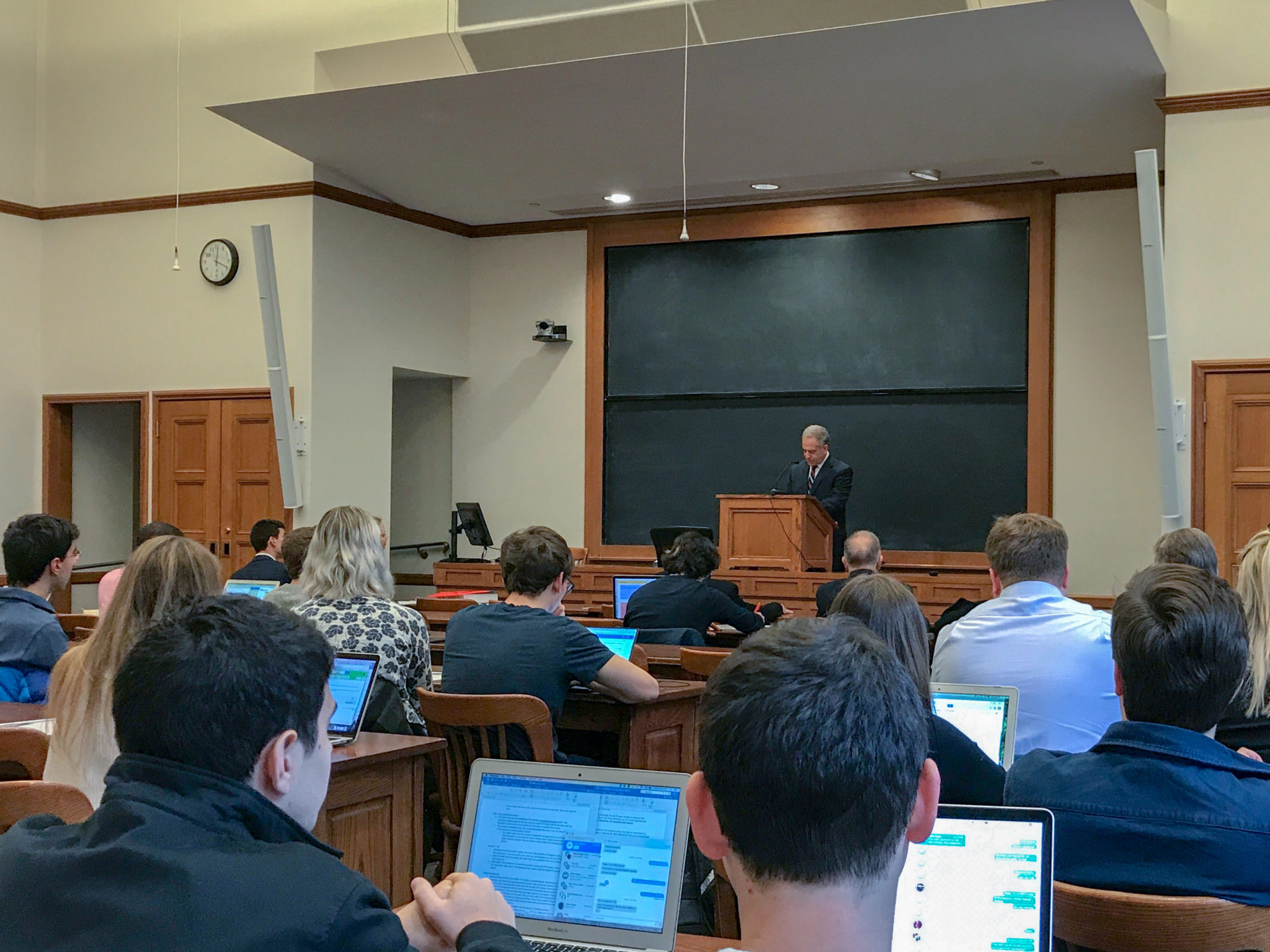
Since the country’s founding, the Electoral College has faced scrutiny. Opponents of the system argue that only around a dozen “battleground” states, where candidates spend a disproportionate amount of money and time vying for individual votes, matter in determining the winners of presidential elections. Voters in states like Texas, California and even Connecticut have little say in the outcome, opponents say, and often find that their states receive little attention from candidates for the nation’s highest office.
On Thursday, the Yale Law School Democrats hosted former Wisconsin Senator Russell Feingold, a Democrat and visiting professor at the Law School, to discuss his work with the National Popular Vote Interstate Compact. By signing the compact, a state agrees to direct its electoral votes to the winner of the national popular vote rather than directing all its votes to the winner of the state or distributing its votes proportionally.
So far, 10 states have signed on. Adding Connecticut to that total would be a major victory, Feingold told the News.
“Connecticut can play a very important role in trying to take care of this situation,” he said. “People are becoming president who are not winning the national popular vote. We’re doing it with complete respect for the Electoral College and the rights of the states to make their own decisions.”
The petition was created in 2006 by attorney Barry Fadem and John Koza, a professor at Stanford University who wrote the book “Every Vote Equal.” The movement has gained new traction since the 2016 presidential election, in which President Donald Trump lost the popular vote but still defeated Democratic candidate Hillary Clinton LAW ’73.
One attendee, Pam Stanton, said she came to the event “because of the crazy election that we just had a year ago.”
“Trump was not really elected,” she said. “It was all done by crazy gerrymandering. I want to see what I can do.”
Jeff Zalesin LAW ’19, one of the event’s organizers, echoed this sentiment, saying that “the 2016 experience” has brought issues with the Electoral College to the forefront of the national political debate.
At the moment, the District of Columbia and 10 states — most of which usually vote for Democratic candidates, including California, Illinois and Massachusetts — have joined the National Popular Vote Interstate Compact. However, at the talk, Feingold emphasized that the movement is nonpartisan.
The 10 states that have signed the compact so far have a combined total of 165 electoral votes, and 14 other state legislatures are actively debating the agreement. The compact will become binding only if it reaches 270 electoral votes, enough to guarantee a win.
Connecticut’s state legislature plans to discuss the agreement this legislative session. The state’s seven votes would bring the total to 172, which Feingold said would give the movement the “momentum” necessary to succeed.
Nearly 100 students, professor, state politicians and community members attended the hourlong talk, and many criticized the Electoral College system.
“The Electoral College is serving to dilute a lot of people’s votes, particularly minorities,” said Joaquin Gonzales LAW ’18, who attended the talk. “Certainly, the 2016 presidential election reinforced my negative opinion of the system.”
One attendee, Annalise Lozier ’21, said she went to the talk to hear about potential modifications to presidential elections, adding that it is important that political systems evolve in response to the changing political landscape. She explained that the Electoral College might have been useful in the early days of the country’s history but that it is now obsolete and needs to be replaced.
Five candidates have lost the popular vote and been sworn in as president, beginning with John Quincy Adams in 1824.
Niki Anderson | niki.anderson@yale.edu







